|
Duncan McNeil (1877-1933)
By John Henderson of Stirling, Scotland in collaboration with Mark Thompson
of County Down, Ulster.
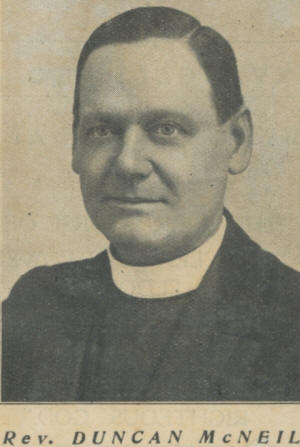
Some time after 1900, Duncan
McNeil of Glasgow became the Minister of a Baptist Church in Orr Street near
Bridgeton Cross, Glasgow where his singing ministry resulted in him
recording a number of 78s with Beltona in the 1920s. He also composed the
lyrics and music for the many hymns which eventually formed his own
self-titled hymnal. He travelled across the Atlantic in 1927 and pastored in
Kimball Avenue United Evangelical Church in Chicago from 1928 until 1930.
Duncan McNeil was born to
Angus McNeil [Carter] and Margaret McKinnon on the 15th of February, 1877 in
218 Rutherglen Road, Glasgow.

Angus and Margaret were
married on the 14th of March, 1876 in the Gorbals, Glasgow, Angus having
been born on the 19th of September 1856 in Mearns, Renfrew, and Margaret in
1858 in Campbeltown, Argyll.
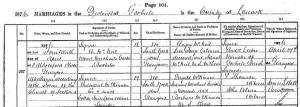
Angus' parents were Angus
McNeil [Iron Forge Labourer] and Janet McLean, both born in 1818 in
Kilninver Parish, Argyll, just South of Oban. Margaret's parents were Dugald
McKinnon [Merchant Seaman]and Barbara McIlreavie who married on the 28 of
August, 1849 in Campbeltown, Argyll, Scotland.
Duncan McNeil, by then a Shoe Finisher to trade, married Catherine McGregor
according to the forms of the Wesleyan Methodists in Cathcart, Renfrew, on
the 27th of December, 1898. Thereafter they had a number of children,
including John in 7 Forrest Street, Camlachie, Glasgow on the 21st of
November, 1901.


From public records
discovered, the first indication that Duncan McNeil had assumed the name
Duncan McNeill and had become a Minister, appeared when he, accompanied by
his son John [Musical Director], arrived in New York, USA in early March
1927 on board the SS Leviathan from Glasgow. Thence Duncan in June, 1927 is
noted as travelling from Detroit to Chicago.
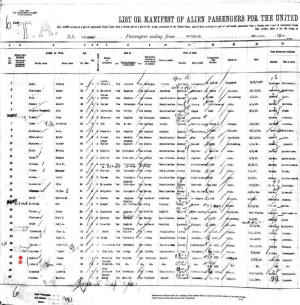
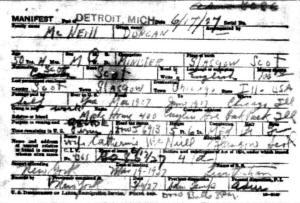
During his time at Kimball
Avenue United Evangelical Church, Chicago, the church's archives note,
"under his leadership the church continued to emphasize evangelistic
meetings. Outreach continued with outdoor Sunday evening services at
the corner of Kimball and Fullerton prior to the evening service at the
church. Fellowship groups developed and thrived during this period. The
Kimball Young People's Fellowship, led by church's young adults, provided
Bible studies and social activities for the church's young adults.
Relationships that formed in that group continued long after many of them
had moved from the area. Christian Comrades, a group for women, began under
the leadership of Grace Linden and others. The 'Cozy Corner' monthly
newsletter continued for years and was sent around country, connecting
friends to one another and Kimball Avenue. Other organizations included the
Protheons, Philathea Club, Excelsiors (for men), Shipmates, Lifesavers, the
Women's Missionary Socity and the Ladies Aid Society."

In 1930 in Chicago Duncan is quoted as saying, " .... during the two years I
have been singing and preaching the Gospel in America, I have received
thousands of requests for copies of the words and music of my song
testimonies. After singing them over the radio, from different stations, I
am deluged with requests thru the mail for the book from which I sing..."
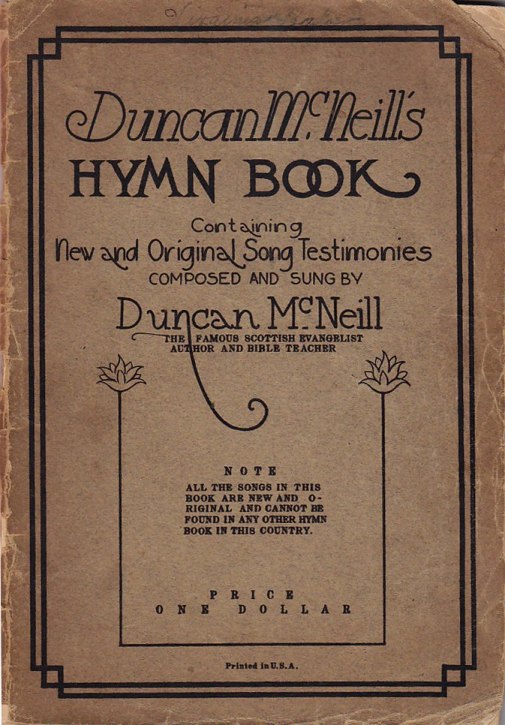
It appears that Duncan
travelled back to the UK in October 1930 on board the SS Leviathan.
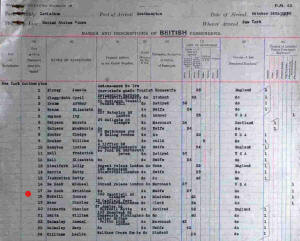
However, he must have
returned to the USA with some of his family, as they arrived back in
Liverpool, England from New York and Boston aboard the SS Britannic on 23rd
December, 1932.
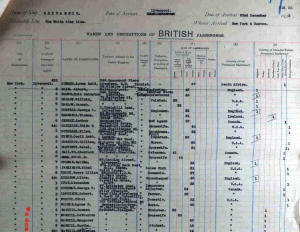
At this point Duncan's
story becomes tragic, as he dies, aged 55 years, of Pernicious Anaemia and
Cardiac Aethenia, on the 28th of January, 1933, in the Victoria Infirmary,
Glasgow.

His widow Catherine McGregor
survived him by some twenty years before she died, aged 76 years, in
Gartmore, Drymen, Stirlingshire on the 22nd March, 1953.

Here are two examples of
Duncan McNeill’s singing, followed by more sheet music of some of his hymns.
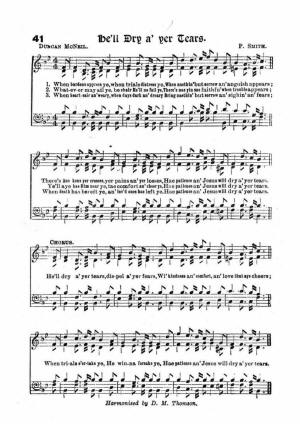
Dry Tears.wav
Dont Be Downhearted.wav
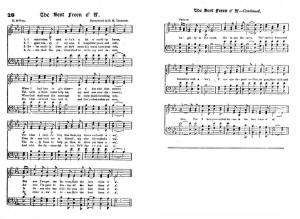
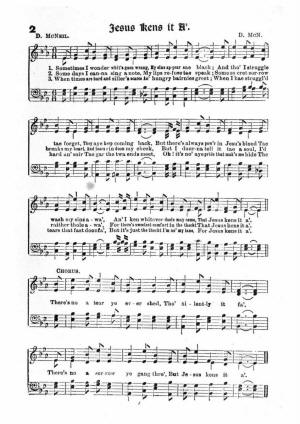
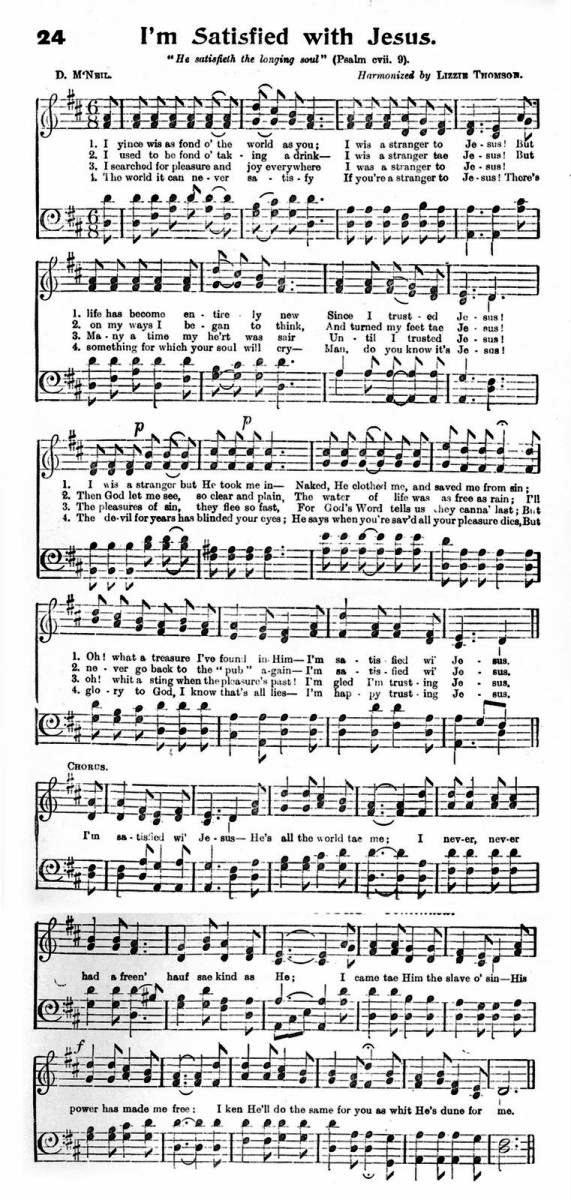
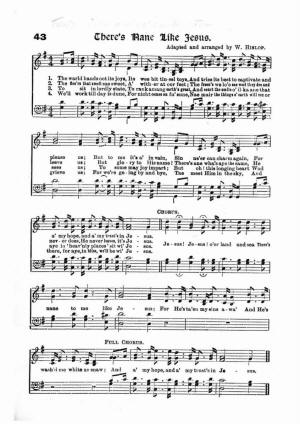
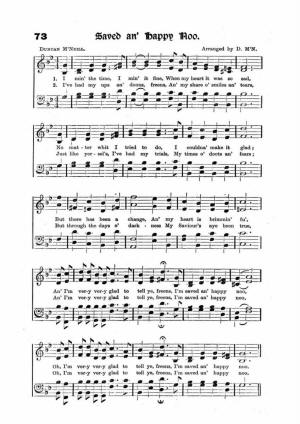
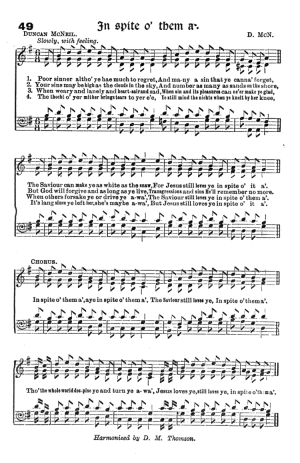 |

